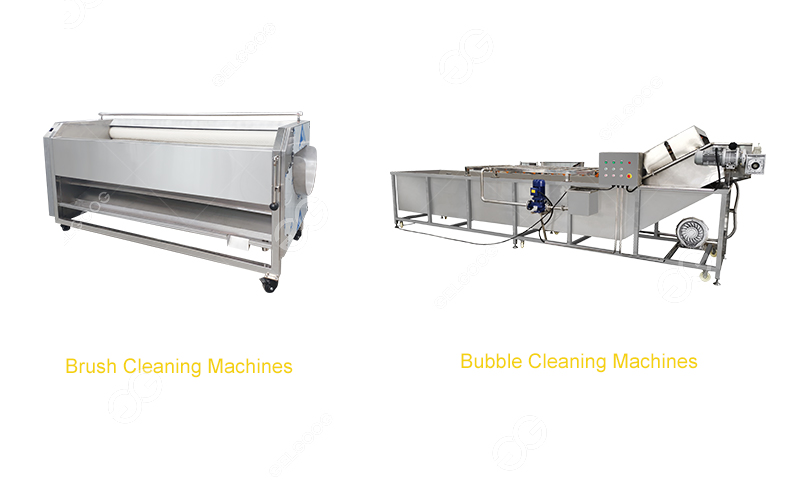Potatoes are a staple food worldwide, used in countless dishes from mashed potatoes to French fries. However, before they reach our plates, they must undergo thorough cleaning to remove dirt, debris, and other impurities. This is where potato cleaning machines play a crucial role. From small farms to large-scale industrial operations, different types of potato cleaning machines are employed to ensure the quality and safety of the produce. Let’s delve into some common types of potato cleaning machine:
1. Brush Cleaning Machines
Brush cleaning machines are one of the most traditional methods of cleaning potatoes. They consist of rotating brushes that scrub the surface of the potatoes to remove soil and other surface contaminants. These machines are typically used for smaller-scale operations and are suitable for delicate potatoes that might be damaged by more aggressive cleaning methods.
Pros:
- Effective in removing surface dirt and debris.
- Gentle on delicate potatoes.
- Simple operation and maintenance.
Cons:
- May not be as thorough as other cleaning methods.
- Not suitable for large-scale operations.
Bubble cleaning machines, also known as air bubble washing machines, use a combination of water and air bubbles to clean potatoes. The potatoes are submerged in water, and powerful jets of air create agitation, loosening dirt and debris. This method is highly effective in removing surface contaminants while being gentle on the potatoes.
Pros:
- Thorough cleaning, even for potatoes with crevices or irregular shapes.
- Gentle on the produce, minimizing damage.
- Can handle a large volume of potatoes.
Cons:
- Requires significant water usage.
- May not be as efficient for removing stubborn soil or heavy contamination.
3. High-Pressure Cleaning Machines
High-pressure cleaning machines use jets of water at high pressure to remove dirt and debris from potatoes. These machines are particularly effective in industrial settings where large volumes of potatoes need to be cleaned quickly and efficiently. They can be adjusted to vary the pressure based on the level of soiling and the type of potatoes being cleaned.
Pros:
- Very effective in removing stubborn dirt and debris.
- High throughput, suitable for industrial-scale operations.
- Adjustable pressure settings for different cleaning needs.
Cons:
- Can be harsh on delicate potatoes if not properly adjusted.
- Consumes significant amounts of water and energy.
4. Roller Cleaning Machines
Roller cleaning machines consist of rotating rollers with abrasive surfaces that scrub the potatoes as they pass through. The rollers can be adjusted to control the intensity of the scrubbing action, making them suitable for a wide range of potato varieties.
Pros:
- Effective in removing dirt and debris from the surface of potatoes.
- Versatile, suitable for different types of potatoes.
- Can be integrated into automated production lines.
Cons:
- Requires regular maintenance to ensure the rollers remain clean and effective.
- May not be as gentle on potatoes as other methods.
Potato cleaning machines play a vital role in ensuring the quality and safety of potatoes for consumption. Each type of cleaning machine has its advantages and limitations, and the choice depends on factors such as the scale of operation, the type of potatoes being cleaned, and the desired level of cleaning efficiency. By selecting the right type of potato cleaning machine, farmers and food processors can ensure that their produce meets the highest standards of cleanliness and hygiene.

